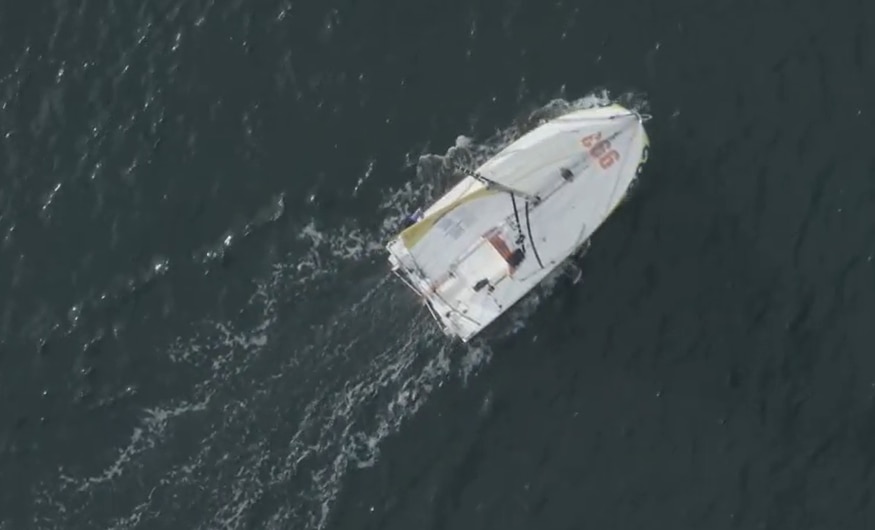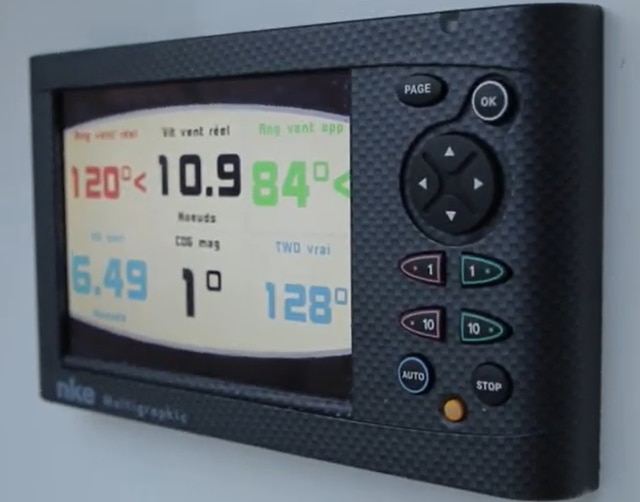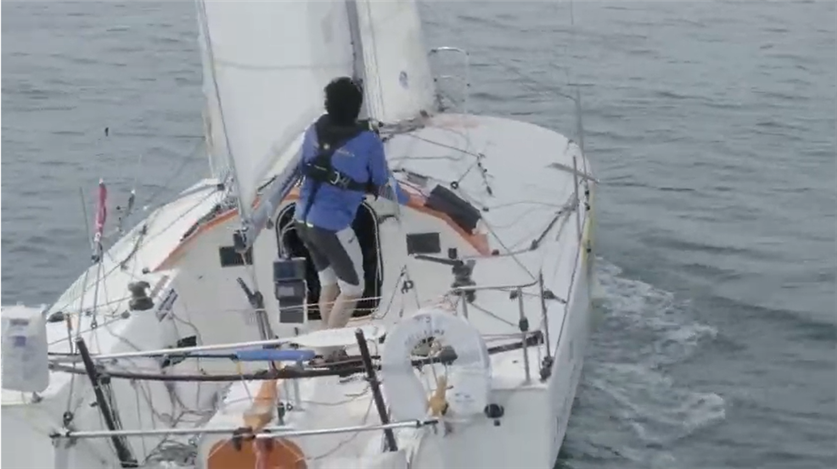Farnell partners with sailor Alberto Riva to redevelop a Nautical Autopilot 
Alberto Riva is a multi-competition winning skipper who always had a passion for sailing since he was a child.
With the support of many different sponsors, he has sailed on a variety of boats from smaller centreboard boats to 70ft long flying trimarans, on board of which he competed many different regattas.i
He now has an eye on a new dream: the Mini Transat - a 4050 nautical miles solo race on the smallest offshore racing boats at only 6.50m long. A challenge that requires not only competence and resilience, but also a sound mind.
Far from being only a sailing passionate and competitor, indeed, Alberto is also a trained engineer who worked as data analyst and on-board electronics expert for the preparation of other racing boats. With a master in nanotechnologies, he also developed an auto-pilot board during his studies
.
The auto-pilot is an element that he defines “his best friend” during sailing, as it allows him to leave the wheel and rest or focus on weather conditions especially on demanding regattas like the Transat, where one-person sailing and no phone/computer or technical support aside from tracking are the main requirements.

Interface for AutoPilot
In light of all the characteristics that distinguish this challenge, such as passion, determination, performance, resilience and technology, Farnell decided to partner with Alberto and help him by opening the project up to our open-source design community to redesign his autopilot. As technologies develop further and faster, we are confident that our electronics enthusiasts could highly improve it to achieve higher performances with better cost efficiency.

Among the improvements Alberto would add, he would certainly focus on changing the current screen (which was an additional cost on the overall system) in favour of taking advantage of new smart phone technologies. Connecting a smart phone to the automatic navigation system could allow to cut a big part of development and budget effort, as it would allow to use the embedded characteristics of modern displays such as waterproofness and mechanical resistance, and make it further flexible and efficient.
Join Alberto in his challenge!
Auto Pilot Components
What do you need for a boat to sail its self?
The autopilot is made by two parts: The data acquisition and the control part.
Several sensor are connected to the system to perform the vectorial calculation of the wind and gain information about the heading of the boat: IMU compass, wind sensor, boat speed sensor and a rudder sensor.
The calculated variables are used to keep the boat on a particular true wind angle or on a particular course. Two nested PID controllers allow the boat to keep the desired route moving the rudder through a linear actuator.
The first PID calculates the desired rudder angle. The second PID, thanks to the rudder angle sensor feedback, drives the motor of the actuator to the desired rudder angle.
The first controller can be set to follow a particular reference: TWA (True Wind Angle), AWA (Apparent Wind Angle), Internal Gyro Compass (preferred choice), Fixed Rudder Angle (debugging purpose).
Ancient mariners would tie the rudder with a rope but this could run them into rocks in their sleep.
Alberto has used electronics to monitor the wind, position and control it all with an Arduino

Components
Learn more about the components used in this build
 |
 |
 |
 |
 |
| Arduino | Max232 Driver Interface | 12v-5v DC to DC Converter | H-Bridge Motor Drivers | Resistors |
| Driver Interfaces | DC to DC Converters | Motor Drivers | Resistors |
Are you ready for Tomorrow?
Competition
Enter our "Ready for Tomorrow" competition for a chance to win a prize from our prize pool
Multicomp Pro MC-120 3D Printer - 3D Printer
Multicomp Pro Handheld Oscilloscope - Hand Held Oscilloscope
Multicomp Pro PC USB Oscilloscope - USB Oscilloscope
Multicomp Pro Soldering Station - Soldering Station
Mulitcomp Pro Handheld Multimeter - Multimeter

Enter our competition by commenting your improvements to Albertos Project below.
What: Comment below your suggested improvements to Alberto's project.
When: Monday 7th March 2022 00:01am to 14th of May 2022 00:01am
Winning Criteria: Our favorite most detailed suggestions will win prizes.
Suggestions must be feasible and cost effective as this is a DIY solution.
Who: a Member of the element14 Community that we can ship prizes to.
Prize: 1 item from the Prize Pool Listed Above.
Details of your answers and contact details can be shared with element14 Avnet Group
